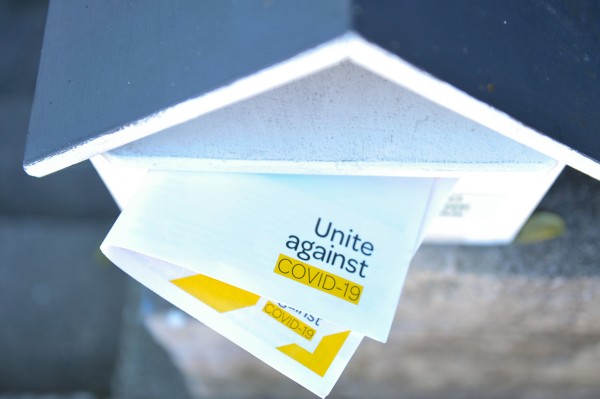References
- Lowy Institute. Covid Performance Index. Lowy Institute, 2021. (Data up to 13 March 2021). Available from: https://interactives.lowyinstitute.org/features/covid-performance/.
- Hong J, Chang R, Varley K. The Covid Resilience Ranking: The Best and Worst Places to Be as Variants Outrace Vaccinations. Bloomberg (26 April 2021). https://www.bloomberg.com/graphics/covid-resilience-ranking/.
- Baker M, Wilson N, Blakely T. Elimination may be the optimal response strategy for covid-19 and other emerging pandemic diseases. BMJ 2020;371:m4907. doi: 10.1136/bmj.m4907.
- Philippe C, Marques N. The Zero Covid strategy protects people and economies more effectively. Paris-Bruxelles: Institut Économique Molinari, April 2021. https://www.institutmolinari.org/2021/04/03/the-zero-covid-strategy-protects-people-and-economies-more-effectively/.
- Wilson S. Pandemic leadership: Lessons from New Zealand’s approach to COVID-19. Leadership 2020;16:279–93.
- Cousins S. New Zealand eliminates COVID-19. Lancet 2020;395:1474.
- Windsor LC, Yannitell Reinhardt G, Windsor AJ, Ostergard R, Allen S, Burns C, Giger J, Wood R. Gender in the time of COVID-19: Evaluating national leadership and COVID-19 fatalities. PLoS One 2020;15:e0244531.
- Wilson N, Kvalsvig A, Baker M. Upgrade of NZ’s COVID-19 Alert Levels Needed to Help Regain NZ’s Elimination Status. Public Health Expert 2020;(3 September). https://blogs.otago.ac.nz/pubhealthexpert/upgrade-of-nzs-covid-19-alert-levels-needed-to-help-regain-nzs-elimination-status/.
- Manch T. Labour reprimanded for treatment of National MP Chris Bishop at testy parliamentary committee. Stuff 2021;(15 April). https://www.stuff.co.nz/national/politics/124850506/labour-reprimanded-for-treatment-of-national-mp-chris-bishop-at-testy-parliamentary-committee.
- McCulloch CE. Covid-19 privacy leak was ‘deliberate and politically motivated’, SSC inquiry finds. Radio NZ 2020;(30 July). https://www.rnz.co.nz/news/political/422343/covid-19-privacy-leak-was-deliberate-and-politically-motivated-ssc-inquiry-finds.
- McNeilly H. Coronavirus: Michael Woodhouse says way Michelle Boag leaked patient information wasn’t ‘normal’. Stuff 2020;(10 July). https://www.stuff.co.nz/national/politics/122097316/coronavirus-michael-woodhouse-says-way-michelle-boag-leaked-patient-information-wasnt-normal.
- Truebridge N. Woodhouse’s isolation homeless mystery man claim debunked. Stuff 2020;(11 August). https://www.stuff.co.nz/national/health/coronavirus/300079861/woodhouses-isolation-homeless-mystery-man-claim-debunked.
- Wikipedia. War cabinet. https://en.wikipedia.org/wiki/War_cabinet (accessed 25 April 2021).
- Cochrane BS, Hagins M, Jr., Picciano G, King JA, Marshall DA, Nelson B, Deao C. High reliability in healthcare: creating the culture and mindset for patient safety. Healthc Manage Forum 2017;30:61-68.
- Centers for Disease Control and Prevention. CERC [Crisis + Emergency Risk Communication] in an Infectious Disease Outbreak. Centers for Disease Control and Prevention, USA. https://emergency.cdc.gov/cerc/resources/pdf/315829-A_FS_CERC_Infectious_Disease.pdf.
- Radio New Zealand. Covid-19: ‘We need to stop dragging our feet’ on saliva testing – Sir David Skegg. Stuff 2021;(15 February). https://www.stuff.co.nz/national/health/coronavirus/300230690/covid19-we-need-to-stop-dragging-our-feet-on-saliva-testing–sir-david-skegg.
- Wilson N, Boyd M, Mansoor O, Delany L, Baker M. Expansion of “green zones” may provide a chance for the global eradication of COVID-19. Public Health Expert 2021;(18 March). https://blogs.otago.ac.nz/pubhealthexpert/expansion-of-green-zones-may-provide-a-chance-for-the-global-eradication-of-covid-19/.
- Satherley D. Coronavirus: Positive Auckland Airport worker genomically linked to known imported case of COVID-19 – Chris Hipkins. Newshub 2021;(21 April). https://www.newshub.co.nz/home/new-zealand/2021/04/coronavirus-positive-auckland-airport-worker-genomically-linked-to-known-imported-case-of-covid-19-chris-hipkins.html.
- Grout L, Katar A, Ait Ouakrim D, Summers J, Kvalsvig A, Baker M, Blakely T, Wilson N. Estimating the failure risk of quarantine systems for preventing COVID-19 outbreaks in Australia and New Zealand. medRxiv 2021;(30 April). https://www.medrxiv.org/content/10.1101/2021.02.17.21251946v3.
- Dow A, Rabe T. Infection control experts call for an end to hotel quarantine in Australia. Sydney Morning Herald 2021;(23 April). https://www.smh.com.au/national/infection-control-experts-call-for-an-end-to-hotel-quarantine-in-australia-20210423-p57lyl.html.
- Radio New Zealand. Govt to pump almost $3 billion into its Covid-19 response after report identified failings. Radio New Zealand 2020;(18 December). https://www.rnz.co.nz/news/national/433132/govt-to-pump-almost-3-billion-into-its-covid-19-response-after-report-identified-failings.
- Quinn R. Covid-infected nurse ‘did everything right’, report finds. Radio NZ 2020;(6 November). https://www.rnz.co.nz/news/national/429973/covid-infected-nurse-did-everything-right-report-finds.
- Canterbury District Health Board. International Mariners Quarantine: Summary of official information request (page updated 22 January 2021). https://www.cdhb.health.nz/about-us/document-library/international-mariners-quarantine/.
- Grout L, Summers J, Kvalsvig A, Baker M, Wilson N. To ensure success of the trans-Tasman travel “green zone”, we need to reduce system failures at the NZ border. Public Health Expert. 2021;(30 March). https://blogs.otago.ac.nz/pubhealthexpert/to-ensure-success-of-the-trans-tasman-travel-green-zone-we-need-to-reduce-system-failures-at-the-nz-border/
- Williams K. Health Ministry’s ‘rubbish bin spread Covid’ theory not likely – health expert. Stuff 2020;(8 October). https://www.stuff.co.nz/national/health/coronavirus/123019917/health-ministrys-rubbish-bin-spread-covid-theory-not-likely–health-expert.
- Eichler N, Thornley C, Swadi T, Devine T, McElnay C, Sherwood J, Brunton C, Williamson F, Freeman J, Berger S, Ren X, Storey M, de Ligt J, Geoghegan JL. Transmission of Severe Acute Respiratory Syndrome Coronavirus 2 during Border Quarantine and Air Travel, New Zealand (Aotearoa). Emerg Infect Dis 2021;27:1274-78.
- Gluckman P, Bardsley A. The Future Is Now: Implications of COVID-19 for New Zealand – A Koi Tū discussion paper. Auckland: Koi Tū, 2021. https://informedfutures.org/the-future-is-now/.
- Boyd M, Baker MG, Wilson N. Border closure for island nations? Analysis of pandemic and bioweapon-related threats suggests some scenarios warrant drastic action. Aust N Z J Public Health 2020;44:89-91.
About the Briefing
Public health expert commentary and analysis on the challenges facing Aotearoa New Zealand and evidence-based solutions.
Subscribe

Public Health Expert Briefing
Get the latest insights from the public health research community delivered straight to your inbox for free. Subscribe to stay up to date with the latest research, analysis and commentary from the Public Health Expert Briefing.
